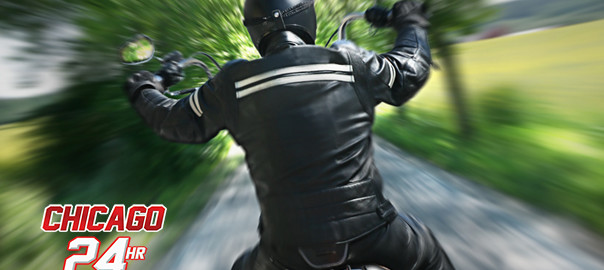Driving motorcycles requires a very different set of skills than driving a car, however it requires the same adherence to the laws of the road than driving any other type of vehicle. In this blog post, I’ll detail some tips for driving a motorcycle safely.
Always wear protective gear
If you wear leather clothing with heavy, non-skid boots, and gloves you can protect your body from injuries in the event of any sort of accident. You should consider attaching reflective shiny tape to your clothing to make it much easier for anyone else on the roads to see you.
Wear a helmet with eye wear
By wearing a helmet you can protect yourself from head injuries. Studies have been conducted which show that motorcycle riders who don’t wear helmets are 5 times more likely to sustain a head injury.
Defensive Driving
You should never assume another driver on the road can see you; always ride with your headlights on, stay out of the blind spot of all drivers, signal other drivers in anticipation of any change in directions, and stay aware of any turning vehicles.
Stay awake and always ride sober
Never drink and ride your motorcycle – not only is it against the law, and leads you to risk lengthy prison time, but it’s exceedingly dangerous for you and anyone you cross paths with on the road. Sleep deprivation can have the same mental effects as a night of binge drinking, so make sure to be fully (or at least adequately) rested before getting behind your bike.
Be aware of road hazards
Since motorcycles have less grounding friction contact with the road than cars do, wet leaves, sand, or even small pebbles can cause bikes to slide. Bumps or holes in the ground that barely affect the driving of a car have a stronger effect on bikes. If they are unavoidable, slow down as much as possible before passing over them, ideally with as little steering maneuvering as possible. Any sort of large obstructions like railroad tracks should be approached at a right angle, in order to reduce any chances of skidding.
Make sure your bike is road-ready
Your bike has to be just as prepared for the highway as you need to be. If anything is wrong with your motorcycle, get it checked out before using it again. In order to make sure your bike is in working order, check out the following criteria:
- Underneath the Bike: Look for any signs of gas or oil leaks.
- Signals, Headlights, and Taillights: Look at your low and high beams and make sure they are functioning correctly.
- Coolant and Hydraulic fluids: Make sure that their level is adequate – these should be checked on a weekly basis.
- Tires: Look for any bulges, cracks, or signs of wear like low tire pressure – any of these criteria could cause a blowout on the road.
Check before driving
Make sure to check the following aspects of your motorcycle’s performance when you mount it, before you rev up the engine:
- Mirrors: make sure your mirrors are clean enough so that you can view it sharply
- Throttle and clutch: Ensure that the throttle snaps back briskly when it’s released.
- Brakes: Make sure that both rear and front brakes work, and have a firm hold on the motorcycle that keeps it fully still.
- Horn: Test the horn to see if it still works at the proper volume to notify passersby of your presence.

